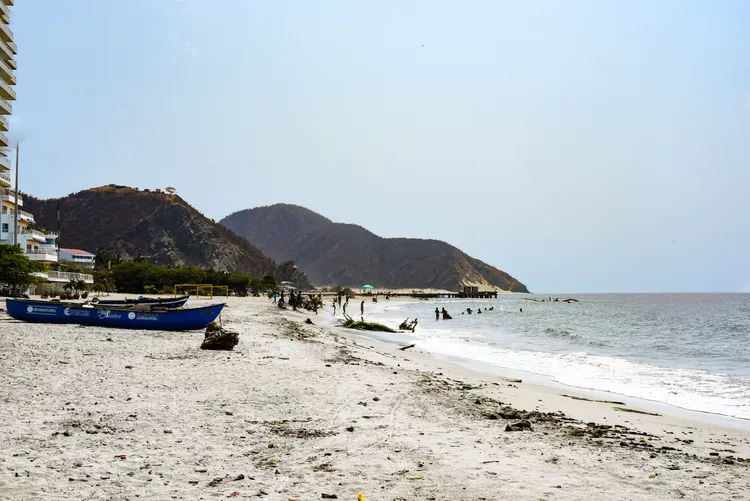Summary
Visit Santa Marta
Santa Marta, located on Colombia’s Caribbean coast, stands as one of the most visited destinations in Colombia, boasting a picturesque harbor and stunning coastal views. Although it may not be the most visually striking city in the country, it serves as an excellent launch point for exploring other charming cities along the Colombian coast.
Things to Do in This Coastal Town
Taganga, once a quaint fishing village just outside of Santa Marta, has gradually evolved into a beach town popular among foreigners. This transformation has resulted in numerous opportunities for scuba diving, planning expeditions to Ciudad Perdida, or visiting Playa Grande. El Rodadero is renowned for being one of Colombia’s most fashionable beach resorts, attracting affluent Colombians seeking leisure by the shore.
Among the must-see natural landmarks are La Sierra Nevada De Santa Marta, Parque Tayrona, and the pristine beaches of Playas Cristal, Neguanje, and Arrecifes.
La Quinta de San Pedro Alejandrino, a 17th-century hacienda, once served as the residence of Simón Bolívar during his final years. Today, a museum on the premises features artworks contributed by various nations he liberated.
The construction of the Cathedral began in the early history of Santa Marta but reached completion only by the end of the 18th century.
Ciudad Perdida, also known as the “Lost City,” is an ancient site attributed to the Tayrona civilization. Established between the 11th and 14th centuries, it is thought to be larger than Machu Picchu and was rediscovered and looted by grave robbers in the 1970s.
:max_bytes(150000):strip_icc():format(webp)/SantaMartaBeaches-Colombia-AnnaHaines74-4d2a2f7ee0f4471a8f00393f04c38aea.jpg)
A Golden History
The Spanish initially chose Santa Marta for their first settlement due to the abundance of gold found in the region. The Tairona indigenous communities were renowned for their exceptional goldsmithing skills, many of which are showcased in Bogotá at the Museo del Oro. Nowadays, the Tairona Heritage Studies Centre is dedicated to studying the indigenous groups residing in the Sierra Nevada de Santa Marta.
Founded in 1525 by Roger de Bastidas, Santa Marta is strategically positioned for exploring the Santa Marta mountain range, which is the second highest in Colombia after the Andes. Although lacking some of the tourism infrastructure found in Cartagena, the city offers warm, clean beaches, many of which are located within Tayrona National Park.
Getting and Staying There
Santa Marta experiences a tropical climate year-round. Days can be hot, while the cool evening sea breezes are particularly inviting, making sunsets and nightlife all the more enjoyable.
By Air: Daily flights connect Santa Marta to Bogotá and various other Colombian cities, landing at El Rodadero airport, located outside the city on the route to Barranquilla. If lodging at a resort, inquire about pick-up services if you’re not comfortable negotiating taxi fares upon arrival.
By Land: Air-conditioned buses frequently travel to Bogotá and other cities, with local buses servicing nearby areas and Tayrona Park. It’s important to note that while distances between cities might appear short, travel times can be lengthy. For example, Santa Marta is approximately 16 hours from Bogotá, 3.5 hours from Cartagena, and 2 hours from Barranquilla.
By Water: Cruise ships often make Santa Marta a port of call, and in addition to the commercial port, there is a marina and berthing facilities available at Irotama Resort Golf and Marina. It’s worth noting that Santa Marta has a historical association with smuggling.




